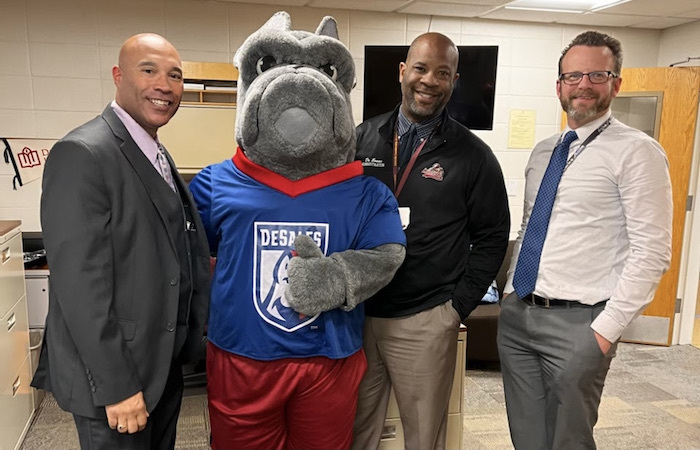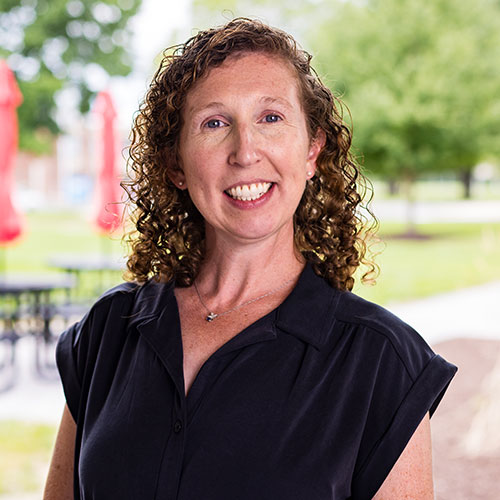Tackling Nerves and Launching Careers—The Key Advantages of Mock Interviews

Landing job interviews is what every college student aspires to achieve—but nailing them can be difficult.
“Everyone is nervous going into an interview,” said Cozette El-Kik ’21, M’22. “But if you go in with confidence and the materials you need to showcase your abilities, the interviewer will be interested in what you have to say and offer.”
El-Kik, a master of education graduate, was one of 22 students to participate in the department of education’s annual mock interviews held during the spring semester.
The mock interviews are open to undergraduate and graduate student-teachers preparing for teacher certification. Participants sharpen their interview skills while building community connections with principals, assistant principals, superintendents, and administrators from local schools, including Lincoln Leadership Academy, Emmaus High School, Hopewell Elementary School, and Diocese of Allentown schools.
Students engage in two 20-minute interviews and then receive constructive feedback about how they did. El-Kik’s goal—to become a top candidate in her field. The mock interview experience, she noted, will likely set her apart from other local candidates.
“I feel it gave me a better understanding of what education professionals in the Lehigh Valley are looking for when hiring a potential teacher. The tips and advice they provided me with after interviewing allowed me to get a precise understanding of ways that I should improve my answers or even how I can bring up certain topics from my student-teaching experience.”
Beyond distinguishing themselves from other applicants, mock interview participants may gain another crucial advantage—their first “in” for their future career.
“While we call them ‘mock interviews,’ in a sense, they are real interviews combined with a learning component,” said Katrin Blamey, Ph.D., associate professor, education department chair, and director of M.Ed. programs. “Students have been known to receive invitations from these individuals to apply for real positions that are open for the remaining school year or the next school year in our local school districts.”
The experience was a first for Connor Ochsenreither ’22, a history graduate with a secondary education certification, who didn’t know what to expect from a formal interview.
“The administrators helped guide me through the process,” Ochsenreither said. “By participating in the mock interview, you have a series of questions at your belt that you are prepared to answer in the future. … I certainly feel more optimistic about crushing interviews.”





